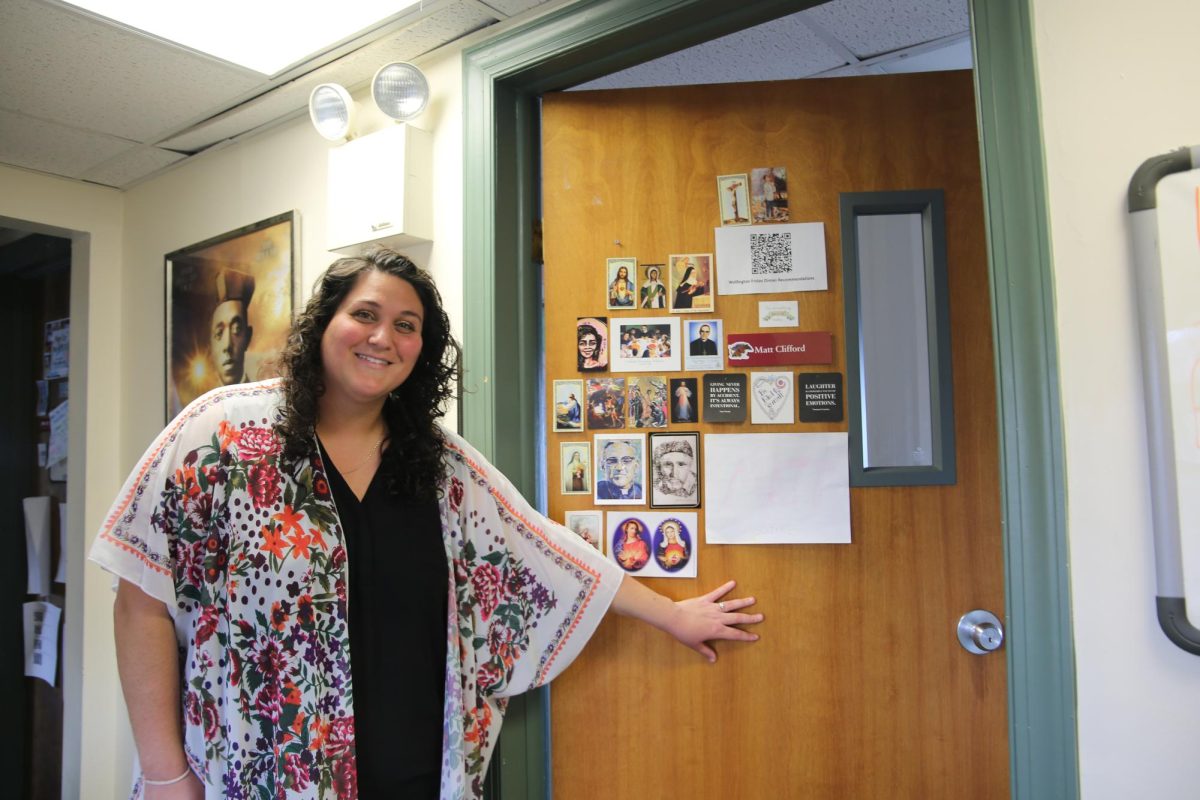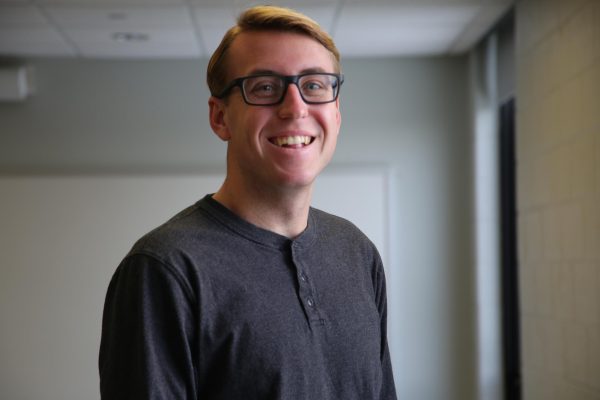Since the fall 2024 semester, St. Joe’s Counseling and Psychological Services has partnered with Campus Ministry to host drop-in counseling hours for students, with a focus on religious and spiritual counseling.
Thomas Nailor, a psychotherapist with CAPS and the representative for CAPS in this partnership, hosts the drop-in hours in the Wolfington Center for Ministry, Faith and Service every Wednesday from 1 p.m. to 2:30 p.m. During this time, any student can meet with Nailor without having an appointment.
Nailor said for CAPS, this partnership was a new way to reach students.
“Our motivation for this collaboration was, and is, meeting students where they are at,” Nailor wrote in an email to the Hawk. “We know that for many students, Campus Ministry, whether physically at Wolfington or more generally … is a space they feel seen, cared for, and safe. We want to make sure that, when appropriate, there’s an opportunity to connect with different kinds of support, such as CAPS, in those spaces.”
Roughly a dozen students have used the drop-in hours at Wolfington since the beginning of the 2024-2025 academic year, matching the drop-in rates in LaFarge Residence Hall, Nailor said.
Tinamarie Stolz, M.A. ’24, assistant director of Campus Ministry and the representative for Campus Ministry in the partnership, said working with CAPS was a way for Campus Ministry to support students’ mental health beyond what campus ministers can provide.
“Your spirituality is very connected to your mental health. Campus ministers are not mental health professionals, but those two things are really, really connected,” Stolz said. “Wouldn’t it be great to have a place that could really help you with your spirituality, which could really help with your mental health, while also respecting the boundary of ‘We [campus ministers] are not mental health professionals?’”
According to McLean Hospital, studies have shown that religion can decrease rates of depression, reduce risk of suicide by up to 68%, and reduce the effects of eating disorders.
While the program is not exclusively for religious students, it places an “emphasis on supporting individuals with religious and spiritual concerns and those affiliated with Campus Ministry and other religious/spiritual groups and organizations specifically,” according to the CAPS website.
Alongside the drop-in hours, Nailor also helps coordinate mental health training for both faculty and students in Campus Ministry, alongside attending Campus Ministry events when needed.
“We find that, even if I may not serve as a student’s ongoing therapist, that starting with someone they know or that a staff member they’re connected with can personally recommend, can be a big help towards students connecting with services,” Nailor said.
Stolz said she viewed the collaboration as forming one team with two different roles.
“You can bring your spirituality, religious questions to CAPS, and you can bring your mental health to Campus Ministry, but both care for the whole person, both work together to create a holistic approach to wellness,” Stolz said.
Scott Sokoloski, Ph.D., director of CAPS, said this partnership is part of a larger attempt to destigmatize mental health care on campus, which has also included adding drop-in hours in the Center for Inclusion and Diversity.
“One of my goals as director is to reduce the stigma associated with mental health for the campus community, and to do so, we have to be out of our offices and in spaces where students may feel more comfortable or supported,” Sokoloski wrote in an email to the Hawk. “This is the same reason that we have drop-in hours in the Center for Inclusion and Diversity and work closely with them on various programs.”
Currently, there are plans to continue the partnership into the next academic year and there are hopes to expand it to other faiths in the future, Nailor said.
“CAPS staff hope to connect more in the coming year with other religious and spiritual communities on campus, whether that’s myself or another member of the CAPS staff,” Nailor said.
Stolz emphasized that while religion can help people with their mental well-being, it is not always the complete answer.
“Being close to God, I think, is really helpful to managing mental health, but never in the sense of praying your mental health away,” Stolz said. “That’s not possible. That’s pressure. It’s also theologically inaccurate. We don’t believe in a god that’s a genie and wishes some people cured of things and some people not. You can have God and a therapist too.”
This article is part of the Philly Mental Health Initiative, a collaboration initiated by The Temple News student newspaper between Philadelphia-area student publications covering mental health on our campuses.
Members of the St. Joe’s community seeking support are encouraged to contact the following resources:
Counseling and Psychological Services (CAPS), 610-660-1090
Campus Ministry, 610-660-1030
The Office of Student Outreach & Support, 610-660-1149
The Jesuit community, 610-660-1400
Employee Assistance Program, 866-799-2728















































